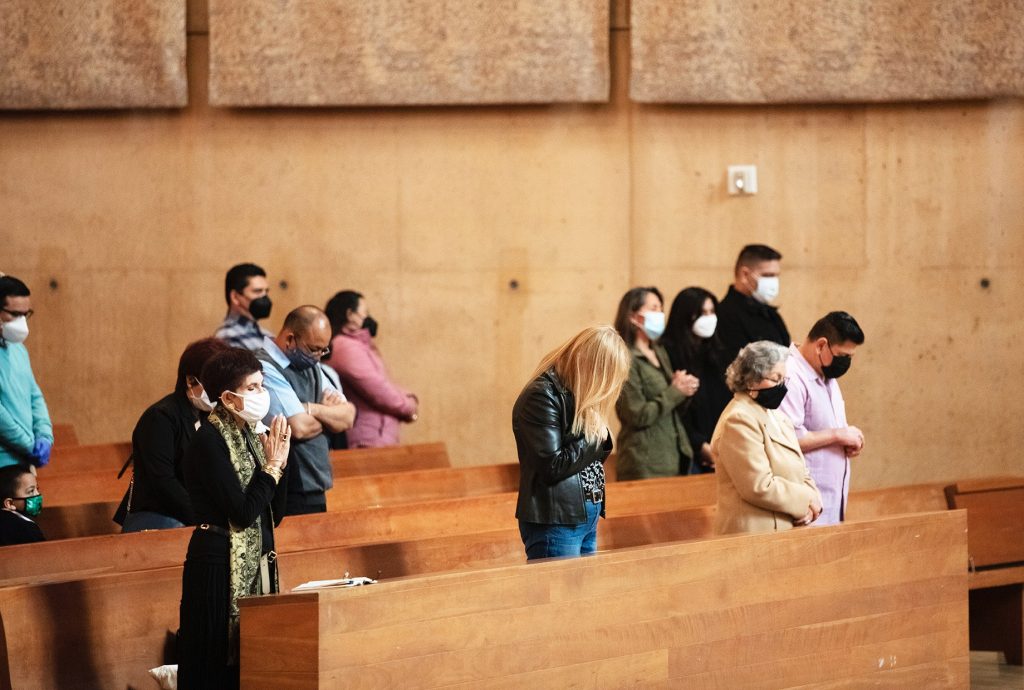The prayers that we say during Mass are a treasure of spirituality.
During this Easter season that we are now concluding, I was again struck by the force of these prayers — the Collect, the Prayer Over the Offerings, and the Prayer After Communion.
These prayers express all the range of human emotions, desires, and hopes.
Through these prayers, we thank God for the gifts of his mighty love; we call on him to strengthen and keep us safe from harm and error. We ask him to turn us from earthly desires, conform us to his will, and transform us in the image of his Son. We pray that he keeps us on the path of life, and that our lives become a worthy offering to him, that we might obtain the perpetual happiness that is our hope in heavenly glory.
Looking back through my Daily Roman Missal to write this column, it is hard for me to choose among all the beautiful samples.
Here is one at random, the Collect from the Fourth Thursday of Easter: “O God, who restore human nature to yet greater dignity than at its beginnings, look upon the amazing mystery of your loving kindness, and in those you have chosen to make new through the wonder of rebirth may you preserve the gifts of your enduring grace and blessing.”
There is an ancient principle in the Church: “lex orandi, lex credendi” (“the law of prayer is the law of faith”). The words we pray express what we believe and our prayer shapes how we live out our beliefs.
To put it another way: We pray what we believe, we believe what we pray, and through our prayer we become what we pray.
That is the purpose of these prayers that vary day to day in the Mass. What we are praying for is to be changed, transformed day by day into a new creation, refashioned after the image of Jesus Christ.
“Lead those you have imbued with heavenly mysteries to pass from former ways to newness of life,” we say in one Prayer After Communion.
And in another: “As we have been brought from things of the past to new mysteries, so with former ways left behind, we may be made new in holiness of mind.”
We pray what we believe, and we believe that Jesus has set us free from sin and death by his death and resurrection. And we believe that in our worship in the holy Eucharist, Our Lord continues the work of our renewal and sanctification.
“Through the sacred mysteries, which we celebrate as our dutiful service, graciously complete the sanctifying work by which you are pleased to redeem us,” we say in a Prayer Over the Offerings.
This prayer brings us into the heart of our eucharistic worship. In our prayers, we join our sacrifices to his, asking him to purify our hearts and minds with grace from on high. “Make of us an eternal offering to you,” we pray.
We can never take the Eucharist for granted. The Eucharist is the most powerful force in the universe. In our worship, heaven is brought to earth, and earth is lifted up and offered to heaven.
Every word that the priest prays in the eucharistic celebration is for us and for our salvation.
We cannot simply listen to the words of these prayers passively, as if we are the “audience.” We need to make these words our own and live them passionately, praying to grow in holiness and to achieve the promise of our immortality and eternal gladness.
In the mysteries of his love, Jesus has unlocked for us the gates of eternity, and so our life now is destined for the glory of heaven and the resurrection.
Everything we do on earth, we should do with our hearts fixed on our heavenly homeland. And our longing for heaven only increases and intensifies the love that we have for our neighbors on earth.
We know that the love we show to others is the love that will be shown to us, and that our life must be made a gift. So we press forward, following in our Savior’s footsteps. This is what the prayers of the Mass “teach” us.
So pray for me this week and I will pray for you.
And in this month of Mary, let us ask our Blessed Mother to help us to pray more deeply the prayers of the Mass and enter more deeply still into the heart of the Eucharist and the mystery of her Son’s love for us.

